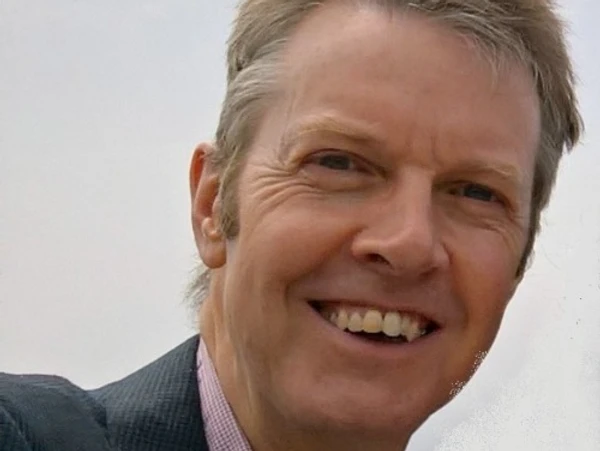
This month’s sustainable journey story is from David Gray, who is Non-Executive Director and Project Manager at the River Stewardship Company.
David is also a member of Sheffield Sustainability Network steering committee.
Q: When did you start thinking about sustainability in terms of your business?
I was lucky enough to study Environmental Biology at university, but then unlucky to find that the qualification didn’t lead to any viable job options. It seemed that saving the world would have to wait for this young and enthusiastic environmental scientist! However, having re-trained as a surveyor, working in the Peak District, I found many outlets for my green passions within the estate agency practice I worked for.
I set about computerising our survey enquiries and data systems to reduce paper (which meant persuading the company to buy a computer back in the 1980s), advised property owners on energy efficiency (whether they were interested or not) and gave guided walks on the natural and social history of the Peak District to school groups. Did you know the Peak District was the first national park to be created in the UK and that there is just one town within its boundaries?
Later in my career, I found even more job satisfaction working in environmental roles for a variety of businesses, charities and public bodies. I currently work as a consultant, supporting businesses and charities on sustainability and project management.
Q: What kind of day-to-day challenges have you faced, following this business principle? How difficult did you find it to carve a niche?
Anyone who has tried to improve the sustainability of their business will know that there is a tension between the financial performance of the business, and the cost of the investments and practices that will make it more sustainable.
This tension can be amplified where there is resistance to change from within the company, and by a lack of leadership in the wider industry sector or by governments. I discovered the hard way that if sustainability is presented in the language of ecology and social justice it would often fail to engage people. As a consultant specialising in sustainability topics, even using the word ‘sustainability’ can sometimes be problematic. Presenting things in simple terms of efficiency and fairness, and backing it up with evidence and analysis, can result in opportunities that also benefit the organisation’s business model. Maybe this makes me more of a persuader than a campaigner?
Sustainability, as my inspiration Satish Kumar said, is a “journey not a destination” and I would now confidently argue that travelling this road is always beneficial to any business or other organisations and will always lead to greater resilience and success.
Q: Do you think there is more of a market for sustainable products or in consumers supporting sustainable businesses now than say five years ago?
Public awareness, political leadership and technological innovation are combining to drive the sustainable business agenda, and the last year has helped to accelerate this trend.
My view is that there is still a lot to do in order to avoid simply switching to ‘green’ consumerism – buying bamboo toothbrushes still requires resources and generates waste. Big issues around land use (balancing the demands for food, energy, materials and wildlife) have intensified, whilst over consumption and waste threaten to eliminate the gains we have made.
What I feel optimistic about, is that sustainable products and business practices can provide solutions when they are backed by sound science – and the best of them are growing. Those of us who work towards this future will lead; and others will surely follow.
Q: What advice would you give to someone who perhaps has a similar business to yours who wanted to be more sustainable, but might not know where to start?
If you are starting with your very first steps, pick some easy things to do and start them straight away. This will give you an appetite for more and demonstrate to the sceptics in your organisation that there are things that can be done right now. An office recycling scheme may seem unambitious, but it includes everyone, and can greatly reduce waste.
The next stage must be to take a good look at your business and how it impacts on both the environment and society. This will identify areas to improve; and then it is up to you how fast you progress. You might need to set up recording systems for electricity usage or travel mileages, look at where and from what kind of supplier your materials or finished products come from, look at how investing in new equipment might reduce waste and improve efficiency. Again, you will need to be selective at first, but all these activities can be part of the normal business cycle of continual improvement. Remember, most businesses don’t use the same methods or sell the same products they did five years ago.
Setting ambitious targets will focus minds, whilst being realistic will ensure you make progress. Setting a business on the sustainability road requires participation from everyone in the organisation, as well as from its suppliers and customers – so however large or small your business or organisation is, it won’t work unless people commit to working together.
This is a low carbon Instadesign website on sustainable hosting.